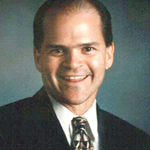For School Success, Try Brain Retraining
Brain retraining for children can sound, well, scary. It conjures images of a diabolical villain fooling with his electrodes in a sci-fi movie.
But it may be the answer to the question: Why didn’t my child do better in school this year?
“I understand that parents can think of brainwashing or something like that,” said Dr. Rick Graebe, a behavioral optometrist in Versailles.
“But once they discover that brain retraining simply refers to the fast-growing field of understanding how we all learn, they relax quite a bit.”
Still, what does that have to do with an eye doctor? When Graebe hears that question, he simply points to research that demonstrates the importance of vision in how we learn. Consider:
- 85% of what we learn in school is processed or presented visually.
- 80% of the brain receives information from the visual system.
- 70% of the brain’s neuropathways have a visual component.
- 33% of the brain is devoted exclusively to vision.
- The visual system involves more space in the brain than the other four senses combined.
“When the visual system is working efficiently, it adds to the learning process,” Graebe said. “When it’s not, it detracts from learning.”
The Rx for an inefficient visual system could be Vision Therapy, an internationally recognized treatment program available in only a few places in Kentucky.
Vision Therapy, a kind of physical therapy for the eyes, brain and body, is neurocognitive training that creates new, permanent pathways in the brain that provide life-long benefits.
Often, with a struggling student, Graebe said, the student’s eyes strain to track across a printed page.
“There are lots of bright, articulate kids who have eye movement issues,” Graebe said.
“When they read, they skip lines, lose their place or suffer headaches.”
Vision Therapy can improve how much information readers process and how fast they process it. The treatment allows students to retrain the brain to master integration skills.
The walls in Graebe’s Versailles office are filled with handwritten testimonials of success stories.
“I feel truly blessed and fortunate to be able to come to work and hear patients tell us of the positive changes that we have made in their lives,” Graebe said.
“It’s an awesome feeling.”

